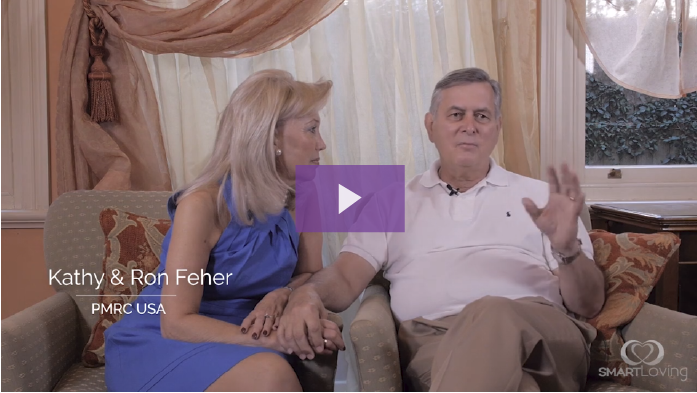Programmed for love or for trouble?

We were recently hosted overnight in the country home of friends. It was a beautiful experience in every way. Our hosts greeted us with warmth, housed us in a tastefully appointed bedroom and nourished us with a delightful meal.
Their home was a beauty to behold; magnificent views overlooking the valley, landscaped gardens and an immaculately clean interior. Dust is a daily challenge in most bush homes, but you wouldn’t know it on entering this one.
We marveled at how our hosts managed to maintain such standards. Our hostess explained that her mother, now 90, was a fastidious cleaner, using cotton buds to remove dust from the corners of the window sills. “I’m the sloth in our family”, she declared as she bustled about clearing the table.
We were on our way to our own bush property where we fully expected to be greeted by layers of dust and clutter and sink full of dirty dishes – the result of shared living with two other families with very different standards to our hosts when it comes to housework.
In a separate exchange with another friend over lunch we were talking about her husband who had abandoned her two years earlier during a mid-life crisis. She commented that his own father had left his family when he was still a baby, so he’d never been fathered properly nor had any modelling of a functional marriage.
In both these cases, we witnessed first-hand the powerful effect that the formation from our Family of Origin has on the way we live and love. This formation is like a computer program that directs our thoughts, beliefs, expectations, and ultimately our behavior.
Hard wired for trouble
We come into marriage preprogrammed with values and assumptions about what is the proper way to do certain things. Whether it’s how to maintain a home, resolve an argument or to stick it out in the tough times, the messages and habits we absorbed from our childhood play-out on in our own families.
These patterns are persistent. Even when we are aware of them and consciously choose an alternative behaviour, we often hold onto the underlying values from our formation.
For example, our friend noted that her husband’s mother had always worked outside the home and he had been raised by nannies. Even though they jointly decided that she would be the carer for their children during their young years, when under stress, he would complain about her lack of income. He had adapted his behavior but not his values.
We had a similar experience in our first year over ironing. While Byron had been living out of home for years and was quite comfortable doing the ironing, Francine’s programming had her holding onto the values from her own formation around home-making.
Although we agreed (after months of turmoil) that it was not necessary for Francine to iron every day as her mother did, Francine felt conflicted because she hadn’t relinquished the belief that good wives did the ironing.
It was fine most of the time, until she was under stress or emotionally strained, such as six months later when her thesis was due. Just when she had the least time for things like ironing, she felt the pangs of inadequacy the strongest.
The programing that we were so valiantly trying to re-write, was persistent and it most often showed up during stress points. It takes many years of practice in a new behavior and thought pattern to over-write the old scripts.
It shouldn’t surprise us that when we are tired, emotionally depleted or psychologically exhausted, we tend to revert to type. These are the times we need to consciously recommit to our new habits.
Attachment styles
We are being formed all the time by our experiences, good and bad. How many times have we said to ourselves in the after math of a painful experience: “well, I won’t try that again!” Even though we might rationally debate in our heads that the experience was an exception, many of us don’t go back for a second round.
The formation from our Family of Origin is particularly powerful. These early experiences of care and belonging, or their absence, set in place primal assumptions about relationships. This is where our attachment styles are formed.
Our attachment styles are programmed by our primary relationships especially through our parents from our first moments.
If our needs as an infant are consistently met by our parents, we learn that we are safe, that the world outside the womb is a wonderous place. We can explore our environment confidently knowing that our parent is close by.
Young children, absorbed by their curiosity, are drawn to explore their world. That’s why they so often wander off. Soon, they realise they have strayed and look for their parent and the reassurance of their presence.
This pattern of safety-exploration-reassurance establishes a ‘secure attachment’ style. These children grow up to become confident adults, able to face challenges and form healthy trust relationships.
Alternatively, if as an infant we are frequently neglected and our needs are not attended to with love and consistency, we learn that the world is a threatening place. Instead of a secure attachment we form an insecure one.
Sometimes, insecure attachments are expressed as an anxious dependency, where the child clings to the parent and avoids the normal exploration that is natural to a curious little mind. He or she is likely to get agitated and distressed when separated from the parent and the pattern can persist into adult relationships where they might become clingy and overly dependent.
For others, an insecure attachment might express itself in stubborn independence and resistance to intimate relationships. This kind of avoidant pattern is a self-protective strategy in reaction to emotionally disengaged parenting.
People with an avoidant attachment style can have difficulty forming relationships of trust because they are always wary of hurt or disappointment. When someone gets too close, they tend to withdraw, pre-empting rejection and guaranteeing disconnection in the process.
Changing the scripts
Attachment styles, like all formation patterns, tend to persist into adulthood. They get reinforced by repeated experiences like a river carving through a canyon; with every flood, the canyon gets deeper, making it harder for the river to change course.
Over time, we can’t even envision a different course because we are so deep in the canyon. Our expectations for how our relationships will play out pre-empt the possibility of them being different.
But it is possible to change. With the right support and consistent effort, we can reprogram our thinking and make conscious choices about our behaviours. Yes, it takes dedication as we need to recommit again and again when we regress, but it is certainly possible.
Just as a computer can be re-programmed, so can we. Our programming – good, bad and neutral – is the expression of our past experiences and the meaning we attached to them.
As children, we are especially vulnerable to interpreting isolated experiences globally. So, a single traumatic encounter can have long-lasting negative effects as our brain gets stuck in defense mode. We become reactive to perceived dangers, even when there is no real threat present.
But we are not our programming. We are the beloved son or daughter of a God who created to live in freedom and in love. No matter how difficult our situation, God is always ready to help us grow towards the person he created us to be.




